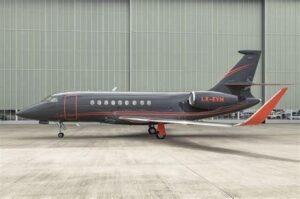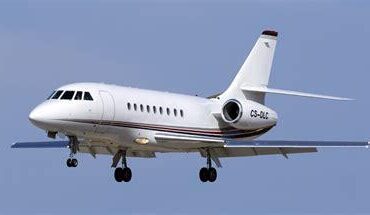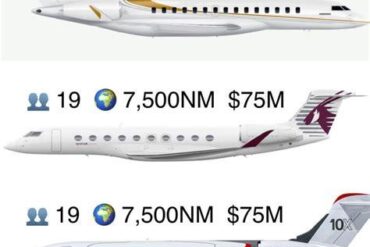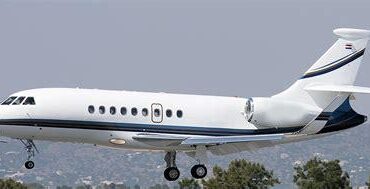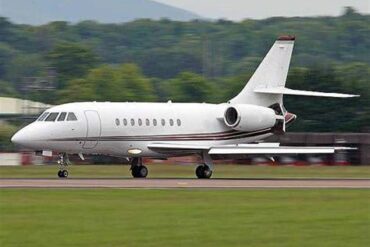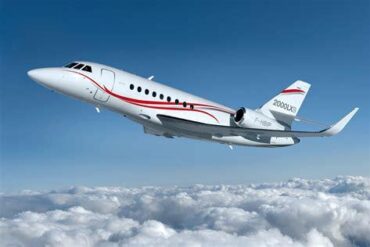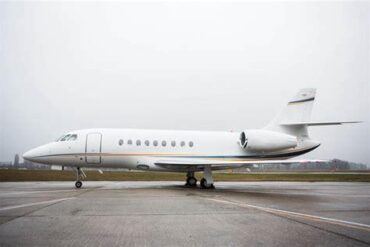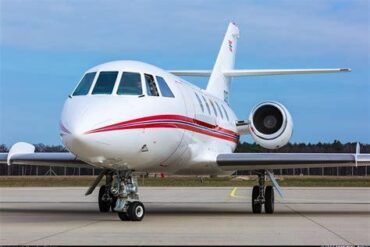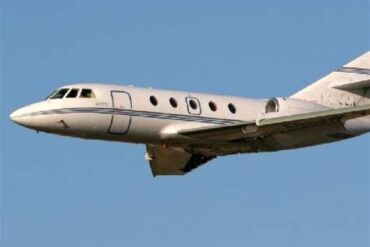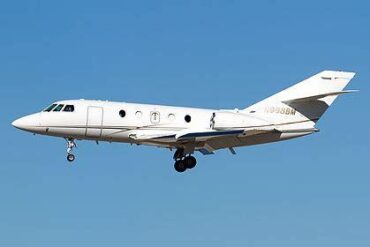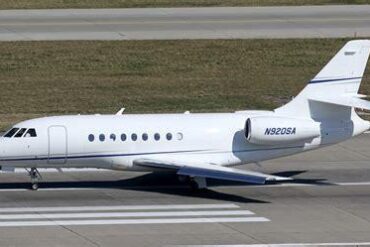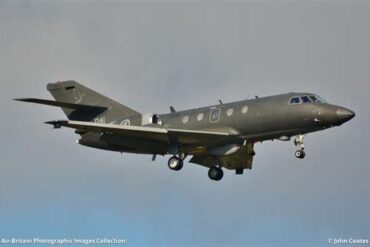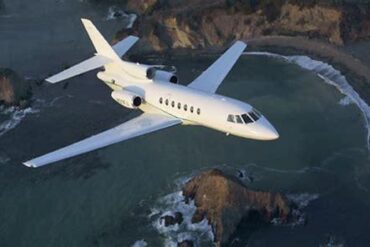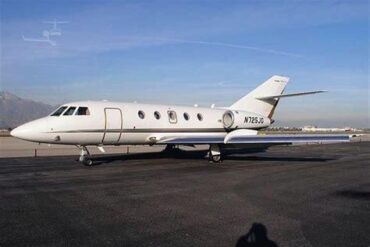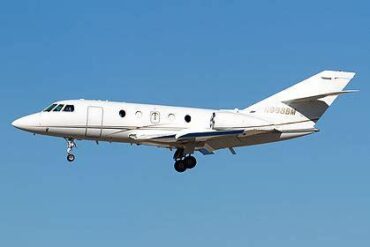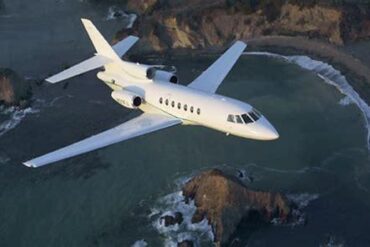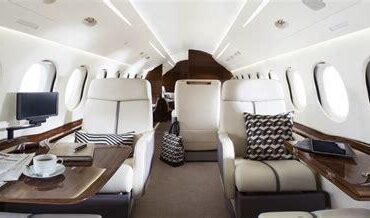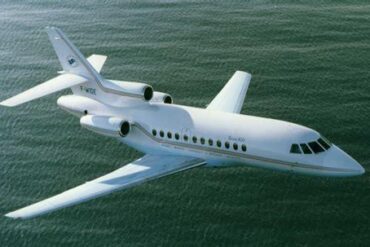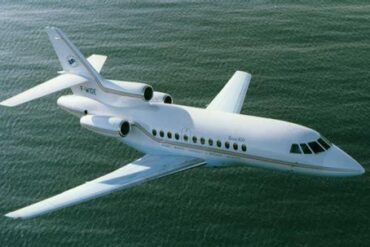The Dassault Falcon 2000LX is a remarkable business jet that combines luxury, performance, and efficiency. Known for its versatility and advanced technology, the Falcon 2000LX has become a preferred choice for many corporate executives and private owners. In this comprehensive article, we will delve into the price of the Falcon 2000LX, its operating costs, and the factors that influence these expenses.
Overview of the Dassault Falcon 2000LX
The Falcon 2000LX was introduced in 2009 as an upgraded version of the Falcon 2000EX. It features a longer range, enhanced fuel efficiency, and a spacious cabin designed for maximum comfort. With a maximum range of approximately 4,000 nautical miles and the ability to carry up to 10 passengers, it is ideal for both short and long-haul flights. The aircraft is powered by two Pratt & Whitney Canada PW535E engines, which provide exceptional performance and reliability.
Initial Purchase Price of the Falcon 2000LX
The initial purchase price of a new Dassault Falcon 2000LX typically ranges from $30 million to $40 million. However, this price can vary based on several factors, including:
-
Customization Options: Buyers can choose from various interior layouts, materials, and technology upgrades, which can significantly affect the overall price.
-
Market Demand: The demand for business jets fluctuates, impacting the pricing of both new and used aircraft.
-
Economic Conditions: Broader economic factors, such as inflation and interest rates, can also influence the cost of acquiring an aircraft.
For those considering a pre-owned model, prices generally fall between $10 million to $25 million, depending on the aircraft’s age, condition, and total flight hours.
Operating Costs of the Dassault Falcon 2000LX
Operating costs are a critical consideration for potential buyers. Understanding the fixed and variable costs associated with the Falcon 2000LX can help owners budget effectively. Here, we break down these costs:
1. Fixed Costs
Fixed costs are expenses that do not fluctuate with the number of flight hours. These include:
-
Insurance: The annual insurance cost for a Falcon 2000LX can range from $30,000 to $50,000, depending on the coverage level and the owner’s flying history.
-
Hangar Fees: Hangar costs vary by location but can average around $12,000 to $25,000 per year. This expense is influenced by the size of the hangar and the local airport’s fees.
-
Management Fees: If the aircraft is managed by a third-party company, management fees may range from $50,000 to $150,000 annually, depending on the services provided.
-
Annual Maintenance Reserve: Owners should budget approximately $200,000 to $300,000 each year for routine maintenance and inspections.
2. Variable Costs
Variable costs are directly related to the operational usage of the aircraft and can vary significantly. Key components include:
-
Fuel Costs: The Falcon 2000LX has a fuel consumption rate of about 190 gallons per hour. With an average fuel price of $6 per gallon, this translates to approximately $1,140 per hour in fuel expenses. Fuel prices can fluctuate, so it’s crucial to monitor market trends.
-
Crew Salaries: Employing a qualified flight crew, typically consisting of a pilot and co-pilot, incurs annual salaries ranging from $150,000 to $250,000, depending on experience and location.
-
Maintenance Costs: Routine maintenance costs can average $1,000 to $1,500 per flight hour. This includes parts, labor, and unexpected repairs. Budgeting for unexpected maintenance can help avoid financial surprises.
-
Landing Fees: Landing fees vary based on the airport and can range from $200 to $1,500 per landing, depending on the airport’s size and location.
3. Total Operating Costs
When combining both fixed and variable costs, the total operating costs for the Falcon 2000LX can range between $1.5 million to $2.5 million annually. This estimate assumes an average usage of 400 flight hours per year. Factors influencing total costs include flying frequency, fuel prices, and maintenance requirements.
Factors Influencing Operating Costs
Several key factors can influence the operating costs of the Dassault Falcon 2000LX:
1. Flight Hours
The more frequently the aircraft is flown, the higher the variable costs, especially fuel and maintenance. Owners who maximize their aircraft’s usage may find it more cost-effective over time, while those who fly infrequently may face higher relative costs per hour.
2. Maintenance Practices
Adopting a proactive maintenance schedule can significantly reduce long-term costs. Regular inspections and timely repairs can prevent more extensive and expensive issues from arising, ensuring the aircraft remains in optimal condition.
3. Fuel Management
Effective fuel management strategies can help control one of the most significant variable costs. Utilizing flight planning software to optimize routes and altitudes can result in fuel savings, while monitoring fuel prices allows owners to refuel at the most economical locations.
4. Crew Efficiency
Hiring experienced crew members who understand the nuances of operating the Falcon 2000LX can enhance operational efficiency. A well-trained crew can minimize delays, enhance safety, and improve overall flight experiences.
Cost-Benefit Analysis
When considering the purchase and operation of a Dassault Falcon 2000LX, it is essential to conduct a thorough cost-benefit analysis. The benefits of owning this aircraft include:
-
Time Savings: Private jets offer unparalleled flexibility, allowing owners to bypass commercial airline schedules and travel directly to their destination.
-
Productivity: The spacious cabin allows for work and meetings to continue during flight, maximizing productivity.
-
Comfort and Privacy: The luxurious interior provides a comfortable environment for relaxation or business discussions, ensuring a pleasant travel experience.
Despite the significant investment involved, many owners find that the advantages of owning a Falcon 2000LX outweigh the costs, particularly for frequent travelers.
Conclusion
In summary, the Dassault Falcon 2000LX is an exceptional business jet that combines luxury, performance, and advanced technology. While the initial purchase price can be substantial, understanding the associated operating costs is crucial for potential buyers. By carefully considering the fixed and variable expenses, as well as the factors influencing these costs, owners can make informed decisions that align with their travel needs and financial objectives. Ultimately, the Falcon 2000LX stands out as a premier choice for those seeking a blend of efficiency and elegance in their air travel.
